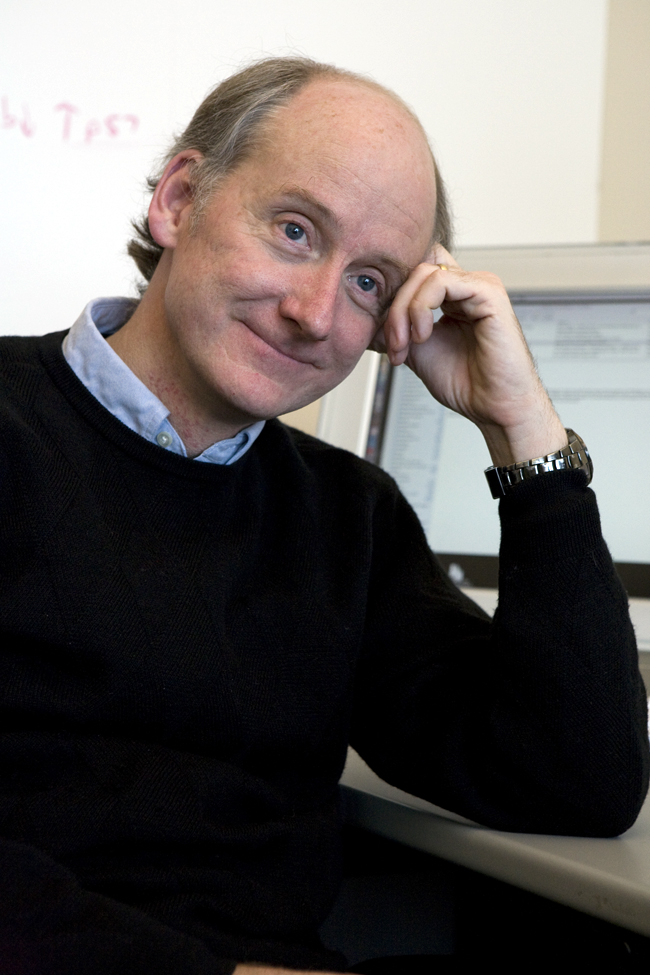
James A. "Jamie" Thomson, co-director of regenerative biology for UC Santa Barbara's Center for Stem Cell Biology and Engineering, has been named a co-winner of the 2011 King Faisal International Prize for Medicine. The announcement was made today in Riyadh, Saudi Arabia, by Prince Khalid Alfaisal, director of The King Faisal Foundation.
Thomson is also director of regenerative biology at the Morgridge Institute for Research, and a professor in the Department of Anatomy at the University of Wisconsin-Madison. He shares the Faisal Prize for Medicine with Shinya Yamanaka, senior investigator in stem cell biology of the Gladstone Institute of Cardiovascular Diseases at UC San Francisco; director of the Center for Induced Pluripotent Stem Cell Research and Application (CiRA) at Kyoto University, Japan; and professor at both Kyoto University and UC San Francisco.
"The selection of Professor Jamie Thomson as a co-winner of this year's King Faisal International Prize for Medicine is a source of great pride and inspiration for our entire campus community," said UCSB Chancellor Henry T. Yang. "His innovative work has the potential to revolutionize biomedical research and regenerative medicine. We are honored to congratulate our colleague on this prestigious international recognition for his pioneering contributions to stem cell research."
As of January 1, Thomson became a part-time member of the faculty in the Department of Molecular, Cellular and Developmental Biology (MCDB) at UCSB. Thomson has a 20 percent appointment to UCSB and an 80 percent appointment to the University of Wisconsin. He is currently on leave from both institutions to fulfill his duties at the Morgridge Institute.
Joel Rothman, the MCDB chair at UCSB, said: "The recent recruitment of Jamie as our newest faculty member was a tremendous coup for both MCDB and the university. As co-director of the Center for Stem Cell Biology and Engineering, Jamie has helped catalyze the spectacular growth in stem cell biology research at UCSB. The Faisal Prize is well-deserved recognition of this truly extraordinary scientist, who is responsible for many of the most significant advances in the stem cell field."
Thomson is often called the "father of stem cell research" because he pioneered work in the isolation and culture of non-human primate and human embryonic stem cells. Thomson's research showed that human skin cells can be reprogrammed to become pluripotent stem cells with all the properties of embryonic stem cells. These induced pluripotent stem cells (iPS) have implications for regenerative medicine, making it possible to generate patient-specific, immunologically matched stem cells without using embryos.
The announcement by the King Faisal Foundation said of Thomson: "Having succeeded in isolating stem cells from non-human primates in 1995 and from human embryos in 1998, Professor James Thomson made –– in 2007 –– the groundbreaking discovery that induced pluripotent stem cells (iPS) could be generated from human somatic cells. This important breakthrough has revitalized interest in stem cell biology, with many laboratories re-investigating the possible use of these cells in the modeling and treatment of human diseases."
Yamanaka was honored by the Foundation for having "achieved a major breakthrough in 2006, when he was able to generate induced pluripotent stem cells from mouse adult fibroblasts. In 2007, he succeeded, independently of Professor Thomson, in reprogramming human adult skin cells into iPS cells."
The Faisal Prize will be presented to Thomson during a March ceremony in Riyadh. Over the past 33 years, 57 scholars from 11 different countries have won the King Faisal International Prize for Medicine.
Related Links
Center for Stem Cell Biology and Engineering
James A. Thomson
MCDB



